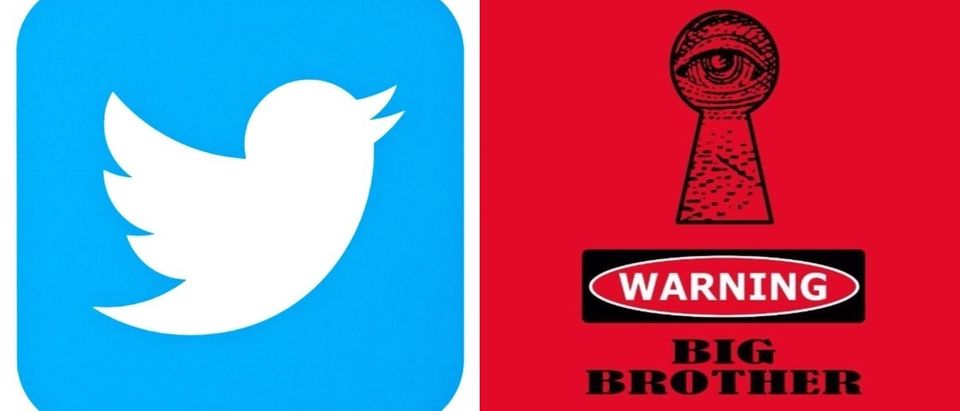In today’s America, Twitter drives much of the news cycle and much of the political debate. It is, as the Supreme Court described it, the “modern public square.” Every member of Congress now has a Twitter account, as does every state’s governor. A modern political candidate cannot win without a Twitter presence. Some 96 percent of journalists report they use it regularly. Twitter allows a level of direct access to politicians, journalists and thought leaders that is unprecedented in history. To quote the Supreme Court again, Twitter is among “the most powerful mechanisms available to a private citizen to make his or her voice heard,” allowing anyone with an Internet connection “to become a town crier with a voice that resonates farther than it could from any soapbox.”
That’s why Twitter’s recent attempts to censor certain users should scare all of us. In the past two years, Twitter has kicked off and suspended several well-known conservatives. It banned a pro-life campaign advertisement from Rep. Marsha Blackburn because it deemed it “inflammatory.” It has refused to allow ads that target illegal immigration. As Federal Communications Commission chairman Ajit Pai said in November: “When it comes to an open Internet, Twitter is part of the problem. The company has a viewpoint and uses that viewpoint to discriminate.”
It wasn’t always like this. Back in 2012, Twitter described itself as “the free speech wing of the free speech party.” In a 2012 article, The New York Times said that “Twitter has deftly built something of a reputation for protecting free speech, even unpopular speech.” Twitter’s “values” page states” “We believe in free expression and believe every voice has the power to impact the world.” As recently as last November, a federal judge refused to hold Twitter liable for permitting ISIS members to have accounts on their platform because it would require Twitter to remove or filter content from ISIS members. According to the court, “any policy that requires interactive computer service providers to remove or filter particular content,” even content that promotes ISIS, would have a chilling effect on Internet free speech and undermine Twitter’s purpose of providing a platform for free expression.
Indeed, allowing Twitter to censor content is extremely troublesome given Twitter’s self-proclaimed mission to “give everyone the power to create and share ideas instantly, without barriers.” Imagine if Google could browse your emails, or Facebook could browse through your posts, and delete ones it found objectionable. Imagine, too, that Google could deny you email and Facebook an account not because of anything you’ve said, but merely because of who you’ve associated with in the past. Yet Twitter is now saying it will ban users based on viewpoints and off-platform associations. The chilling effect that the judge warned about is here.
While the First Amendment does not apply to Twitter censorship, California law arguably does. And the California Constitution contains broader protections for free speech than the First Amendment. Unlike the First Amendment, which couches the right to free speech as a limit on congressional power, the California Constitution gives “every person” an affirmative right to “freely speak, write and publish his or her sentiments on all subjects.” In a 1979 case called Robins v. Pruneyard Shopping Center, the California Supreme Court held that this broad language means that privately-owned public forums can’t censor speech. While the Pruneyard case involved a shopping center, the California Supreme Court has held that the decision applies to any entity that is the “functional equivalent of a public forum.” There is no better modern example of a privately-owned public forum than Twitter. Indeed, unlike shopping centers, which exist mainly to facilitate the purchase of consumer goods, Twitter’s entire purpose is to serve as an open forum for speech and debate.
California law (the Unruh Act) also holds that business establishments (like Twitter) can’t deny service to people based on their “characteristics or associations,” such as those “who wear long hair or unconventional dress, who are black, who are members of the John Birch Society, or who belong to the American Civil Liberties Union, merely because of these characteristics or associations.”
As an attorney, I represent one such user who was recently banned by Twitter for viewpoints and supposed off-platform affiliations. The user — Jared Taylor — has highly controversial views on many issues, especially race. However, freedom of thought means “freedom for the thought that we hate.” Even Taylor’s critics concede that he has always shared his views respectfully, without harassing or threatening anyone. He has encouraged his followers to similarly refrain from harassment, threats or disrespectful behavior.
Our important free speech precedents have invariably involved speakers who were widely reviled: Communists, draft dodgers, religious minorities, and the like. Freedom of speech is important precisely because it protects the right of controversial speakers to share controversial viewpoints.
Our lawsuit is not about whether Taylor is right or wrong. It’s about whether Twitter and other technology companies have the right to ban individuals from using their services based on their perceived viewpoints and affiliations. If Twitter wins this battle, there is nothing stopping tech behemoths from searching through users’ social media posts or emails, or investigating their off-platform speech, and banning people whose views it dislikes.
That is a prospect that should terrify everyone.
Noah Peters is an attorney in Washington, D.C.
The views and opinions expressed in this commentary are those of the author and do not reflect the official position of The Daily Caller.


